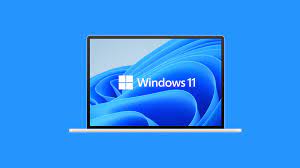The last thing you want is a hard drive with little or no storage space. A nearly full hard drive can negatively affect your entire computer, which will inevitably slow it down and cause your applications to crash more frequently. The only fix is to clean the drive and delete the large files that are taking up the most space, and Windows 11 makes it easy to get rid of unwanted files.
Instead of downloading third-party software to free up disk space, Windows 11 can configure some settings to quickly delete temporary and system files and old downloads. If you're worried about deleting important files, don't worry. Windows 11 will help you decide which files to delete to improve your PC's performance.
How to Automatically Free Up Space on Windows 11
On a Windows 11 computer, go to Settings -> System -> Storage. If this is your first time accessing this setting, please wait a few seconds for your computer to analyze your data storage. Once Windows has gathered what it needs to know, you can see your total free memory at the top of the page. Below it, you'll see a breakdown of storage, divided into Apps & Features, Temporary Files, and Others. You can also click Show more categories to see further breakdowns.
However, the setting we're interested in is Storage Sense, which automatically frees up space on your computer when you're running low on disk space. It does this by deleting temporary files, emptying the recycle bin, and getting rid of old downloads in the background without you having to do it manually.
To turn on Storage Sense, just turn it on here. If you click Settings, you can configure several functions:
1. Run Storage Sense: Run Storage Sense when disk space is low (default) or on a daily, weekly or monthly basis.
2. Delete files from My Recycle Bin if they have existed for more than 1 day, 14 days, 30 days (default) or 60 days.
3. Delete files in My Downloads folder if they haven't been opened for more than the following time: select Never (default), 1 day, 14 days, 30 days, or 60 days.
These Storage Sense settings can help you limit which files are deleted and when, so you don't have to worry about any important files getting wiped from your computer.
At the bottom of the page, you can click Run Storage Sense Now to use the feature.
If you want to delete more files to free up space, use the cleaning suggestions below Storage Sense. If you click it, it will scan your system and recommend files you manually delete, such as temporary files, large or unused files, files synced with your cloud, and unused applications.
>>>>>>>>>>Laptop battery

Comments
Post a Comment